What faculty did you work with at Kutztown University?
While at CBFS, I took classes with Dr. Cynthia Venn, Dr. Ajoy Kumar, and Dr. Sean Cornell. I did CBFS-based research projects with Dr. Sean Cornell and Dr. Adrienne Oakley. My very active and profoundly supportive adviser was Dr. Adrienne Oakley. What skills or lessons did you learn during your time at CBFS that may have influenced the direction of your career? My experience at the CBFS served as a comprehensive and in-depth introduction to the world of oceanography and field work in general. As a professional, I realize that the ability to have ample exposure to top-notch research vessels, facilities and faculty gave me a considerable advantage when starting out my career in this field. The technical and scientific knowledge that I learned at the field station is something that I use every day! Unequivocally, the field station offered me an invaluable educational experience and crystallized my love for oceanography. Is there a moment that sticks out to you as most memorable from your time at CBFS? I have so many great memories from CBFS. They range from playing in marsh mud and vibracoring in the Wallops jungle to beach picnics hosted by my professors and their families. Although, a moment that sticks out to me is when my class went door to door surveying and discussing opinions on beach management policies with local business owners. It felt so rewarding to take what we learned in our course and apply it to a current affair.
0 Comments
This spring Colie DeLong and Casey Michalowski, both Geology majors at Kutztown University, attended the Northeastern Geological Society of America conference to present on a collaborative research project that they began working on in CBFS's Marine Geology course last summer. Over the past few months, the students worked alongside Dr. Oakley to investigate Holocene sedimentation in the Chincoteague Bay through analyzing vibracore and CHIRP Sonar sub-bottom data. After their presentation at GSA, Colie notes that she, "received a lot of positive feedback. Now that I have a little bit of experience sharing research, I feel more comfortable with what I'm doing." Both Colie and Casey agree that the Marine Geology course opened doors for them to become research assistants, which is the case for many of the field-based courses that CBFS offers each summer. For Colie, not only did the course help her to pursue research but to also obtain a minor in Marine Science - she plans to take two more courses at CBFS this summer! She recommends courses at the Field Station because, "you get a lot of experience with equipment and field work... It also shows that you have a dynamic learning experience and it will look good on a resume." Casey remembers one of her favorite experiences from last summer's Marine Geology course: "We went to Assateague Island to dig holes in order to see how deep the water table was. By the end of this, I was in an eight-foot hold dissing with a horseshoe crab!"
Bob Sheridan is one of CBFS's Master Educators. He's worked on school programs, Road Scholar groups, homeschoolers, boyscouts and everything in between during his two-season tenure. This week we're honored to feature Bob in our first of many "Behind the Scenes" posts, before he moves on to earn his master's degree back in his home state of Connecticut. I was asked to talk a bit about the Field Station before I leave here, a kind of reflection on my experience over the last 14 months. I guess the best place to start is to describe what the educators do during our tenure here. If you have already visited us, you have most certainly interacted with an educator-- or at very least someone who used to be an educator. We are the ones who may give a lecture or lead your boat trip in the bay, but we are also the ones who set up your chair before you arrive, and make coffee at 4 am so it's ready for you before we drive out to meet the sunrise; We're the ones who cook a basket of crabs to welcome you to the Eastern Shore, and the ones who made the name tag that you might wear during your time with us. Don't get me wrong - the smiles that we show during programs aren't just plastered on our faces for your benefit. In fact the reason we are all so happy to be here is because we all truly enjoy sharing the experience of sunrises, sunsets, Bills dinners, lecturing about plankton, singing songs around campfires, driving the bus, and helping you find the meaning and substance to the trip that you’re spending with us. And there is one very important reason why we enjoy doing it: we love those experiences so much we made it our profession to share it with other people. Now I could spend time talking about the prep work and paperwork that our job has (and I promise it’s there) but that’s not what gets us energized, just like how those PTS reports aren’t the reason you wake up in the morning. But let’s get into what this job was (and still is) for me.
I wasn’t sure what the culture of the Field Station was until about a month into my job. At that point I began to realize that what I learned in college and one year out of the gate, was miniscule to what these people, who have immersed themselves in the life of environmental education, knew. There is a special attitude that goes into working at a place like the Field Station. Living on campus with 10 other young professional educators, I found that often times the enthusiasm we have for our job carries into our spare time. So while we can breathe a sigh of relief when we complete a successful program, we are all always constantly discussing and investigating the environment around us. It sounds like we never stop being part of our programs because we are always looking at things through that lens. And being there with 10 other people who are all equally passionate, has made me realize that I was blending into a family of fellow Field Station Educators. This idea was reinforced during the 2014 Friends and Alumni weekend. Because CBFS has been around since the 1960's, there have been dozens of people who have shared the position of educator before me, and there will be dozens after me. But meeting people who have done my job and moved on was an experience that I would never trade. That weekend reinforced the familial feeling around this place because people who had my job in the 90's came back to sit around a campfire and bond over equally wonderful and totally miserable experiences that bridge gaps between generations of educators. Just like any job you will ever have, there are bosses to answer to: someone to remind you that a Friday morning meeting was missed, to scold you for forgetting to float a biowheel, to be disappointed that you forgot to take a sample for Massongo Creek, and even that you need to submit a blog post before Friday. That being said, I want to thank my bosses (whoever it is I have to answer to this week!) for being exemplary at what they do. After working for other organizations and talking to friends who work at other nature centers, I can count myself as one of the luckiest. The mentality of constantly putting forth your best and doing the best you can to provide the best service you can is something shared by people from every industry. But what puts this place above the rest is the care and encouragement they provide. Not only do my bosses want my participants to learn as much as they can while also learning those intrinsic values only a field station can supply, but they insist in continuing the education of their employees. My favorite example of this when one of my many bosses asked, within the first 10 seconds of talking with her, “What do you want to do for the rest of your life?” Right away, I knew they were either looking to get rid of me, or were looking to make my experience here beneficial beyond my time as their employee. These are the bosses that are hard to leave, and I want to thank all of the senior staff for making my time as your employee so great. This post only focuses on the staff I work with in the ed center, and neglects some of the people who deserve a shout out. The cafeteria staff is chock full of some of the hardest working, and caring people anyone can come across. And if anyone says meal times are not a bonding experience, they need to sit down for shepherd’s pie and corn bread from our kitchen staff. I am ever thankful that I don’t need to keep the dorms clean, and the buses full of oil. Thank you to the operations crew for being so flexible and ready to have the place ready for the groups we have through. I think those educators from the early 90's as well as the educators today will all say that you will build a family here. It’s hard not to. After only a few months with the new 2015 staff I’ve already made bonds I don’t want to break and have reinforced bonds with old staff which are now deeper and more meaningful than they were a year ago. From top down and bottom up, these are some of the hardest working and most caring people in the world, and if we lost any one part, this place would not be as great as it is. Thank you all for a great year and a half. Just keep working as hard as you do. On Friday, April 24th, 20 children and 7 adults from Accomack County met at the Foodbank of the Eastern Shore to learn about and plant native species in the Foodbank’s garden. Families discussed the symbiotic relationship between birds and native plant species and learned about the work that the Foodbank does for the community. They planted five beds of natives including milkweed and rosemallow, and students were given their own seeds and growing guides to take home. This event is one of many held by Chincoteague Bay Field Station’s Shore People Advancing Readiness for Knowledge (SPARK) program. SPARK is a family-based educational program that emphasizes inter-generational and place-based learning techniques. SPARK promotes that idea that learning is fun and that the environment serves as a starting block for training families in literacy and math skills. This spring the Field Station was awarded a Celebrate Urban Birds mini grant from Cornell Lab of Ornithology, which funds events that allow students and families to become investigators of their local environments and to collect high-quality data about how different environments will influence the location of birds in urban areas.
Special thanks to Alexis Votteler, Community Garden Coordinator, for introducing us to the Foodbank's garden! When we visited Millersville University in October 2014, Dr. Kumar, Professor of Ocean Sciences & Coastal Studies, was hard at work on a project that was aimed to launch this summer. This past weekend he joined us aboard the RV Flatfish along with Dr. McCade, Professor of Applied Engineering, Safety, & Technology, and the Millersville Submersible Research Team to test out their pet project: Dora. Dora is an underwater ROV that will be used to help map and record benthic data in the Chincoteague Bay. The mini-submarine is a VideoRay Pro4 with an advanced commercial sonar system mounted on back to scan the sea floor to create digital models for detailed analysis. She's also equipped with a high-definition GoPro camera to capture video of marine life in their natural habitat. This was the first time that the team was able to test Dora's capabilities in open water, as she's previously been tested in large swimming pools close to the Millersville campus. Overall, the team deemed the trail a success, with some minor adjustments that they plan to make in the coming weeks. Dora will be used during the Field Methods in Oceanography course this summer. This weekend families from Accomack County visited "Sparky's Farm" in Parksley to learn about farm animals, particularly the birds that we find on the farm. Children compared the egg sizes of geese, ducks, and chickens, went on a nature walk, and tried their hand at milking a cow! SPARK is a family-based educational program that emphasizes inter-generational and place-based learning techniques. SPARK promotes that idea that learning is fun and that the environment serves as a starting block for training families in literacy and math skills. This event was sponsored in part by the Celebrate Urban Birds mini grant from Cornell Lab of Ornithology. |
About
Everything you need to know about CBFS's educational programs, visiting Chincoteague Island, and more! Categories
All
Archives
January 2019
|
CHINCOTEAGUE BAY FIELD STATION | 34001 Mill Dam Road | Wallops Island, VA 23337 | (757) 824-5636 | [email protected]
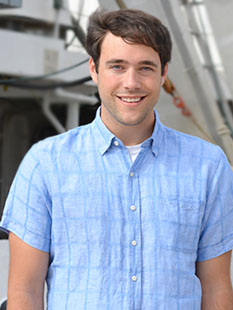
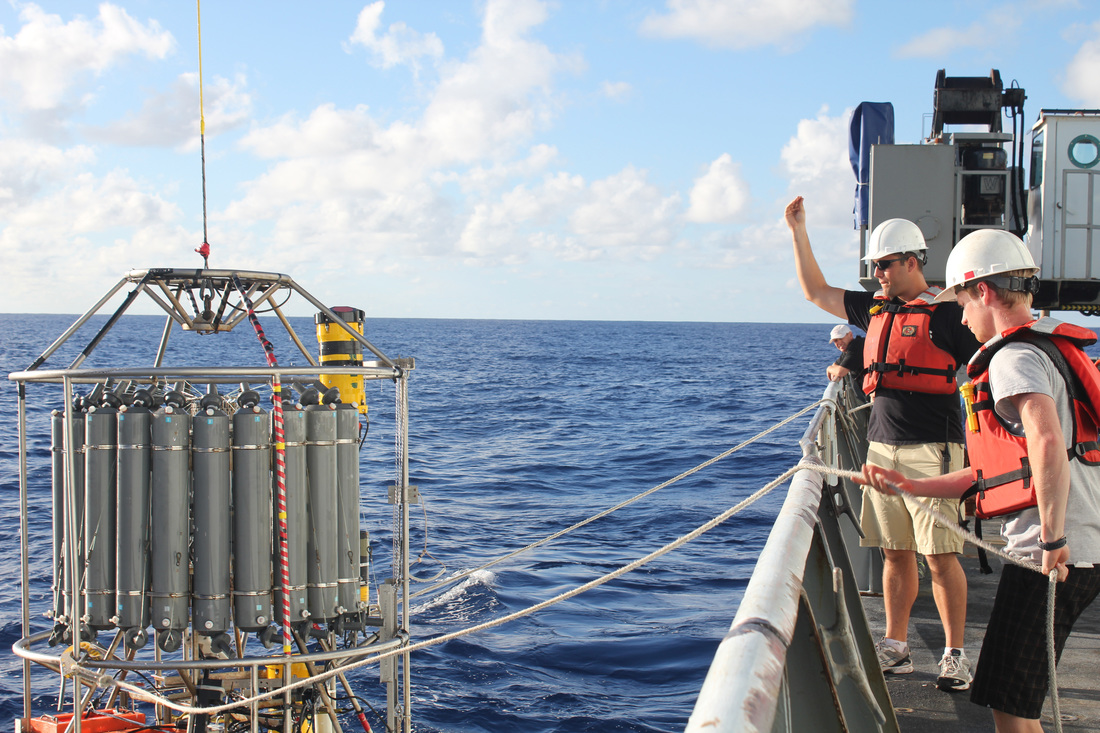
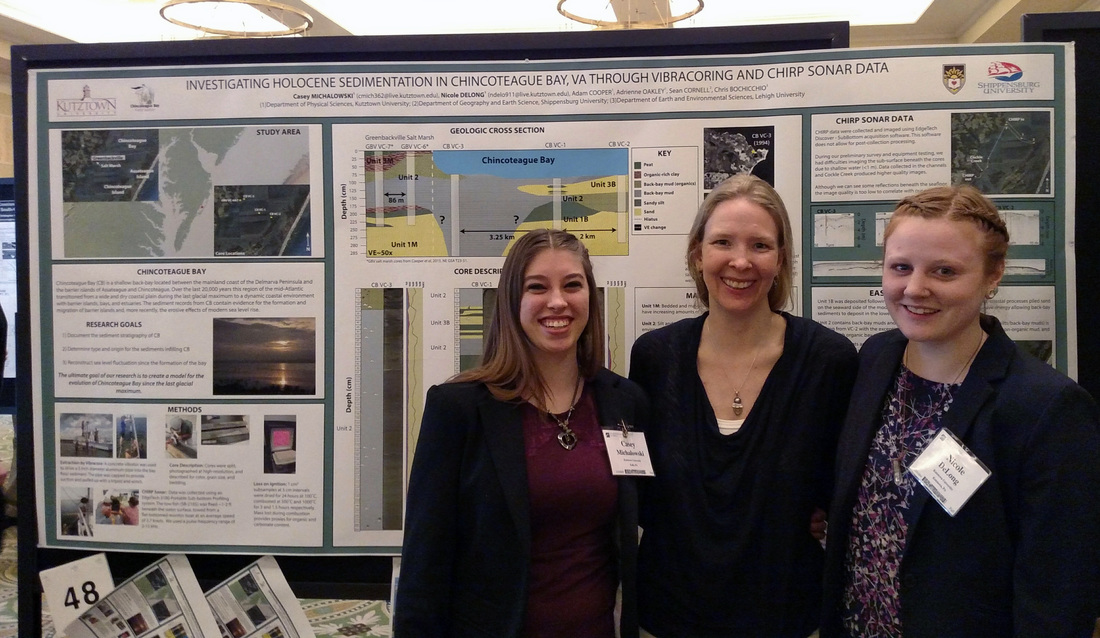
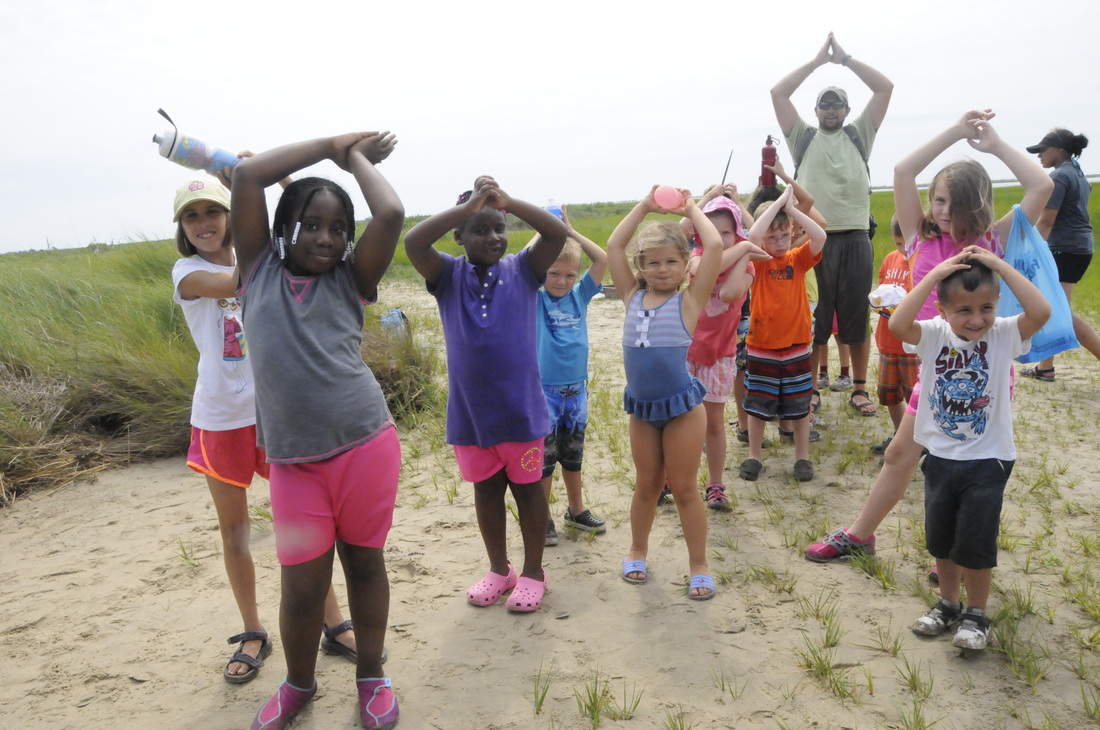
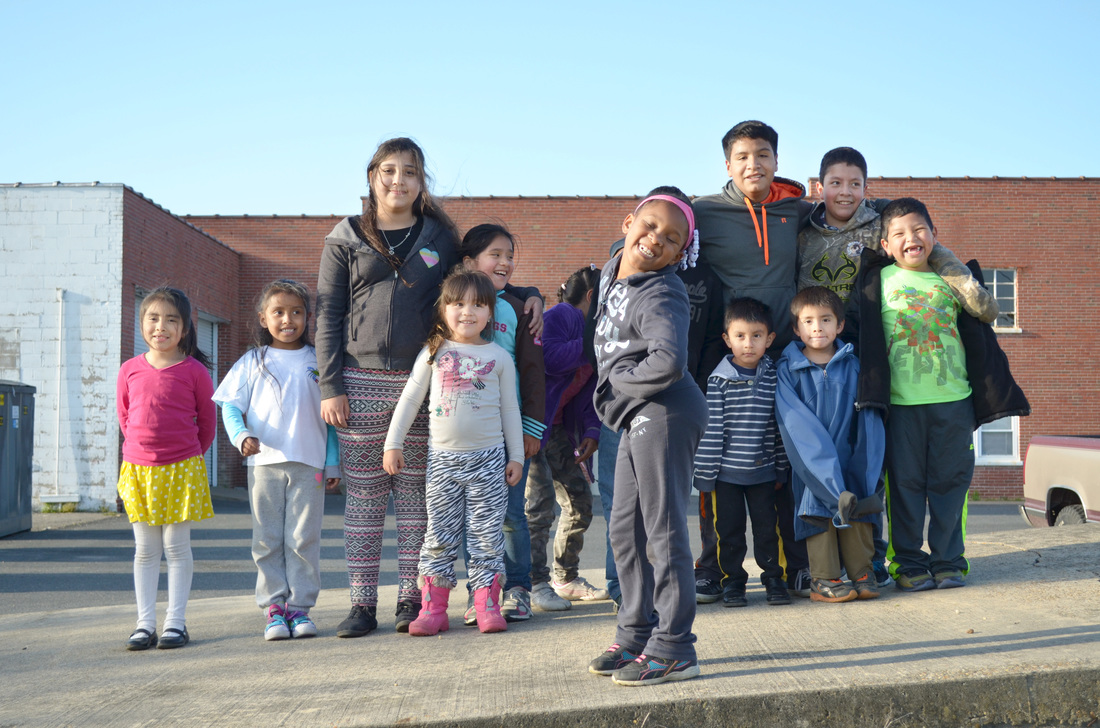
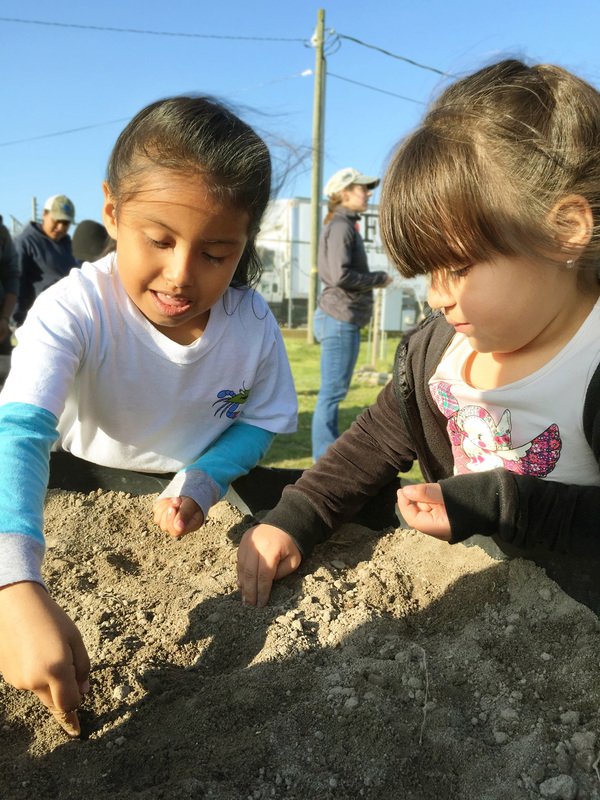
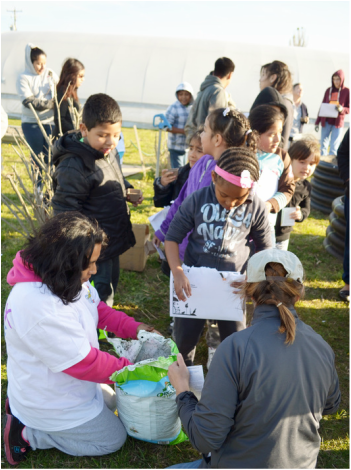
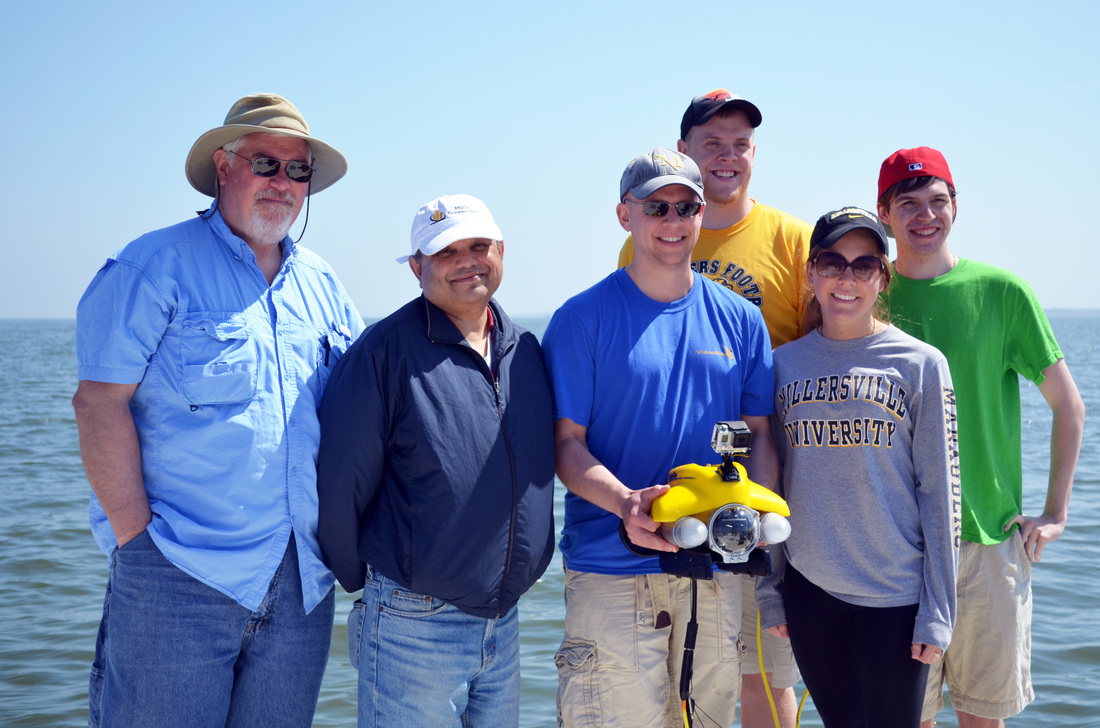
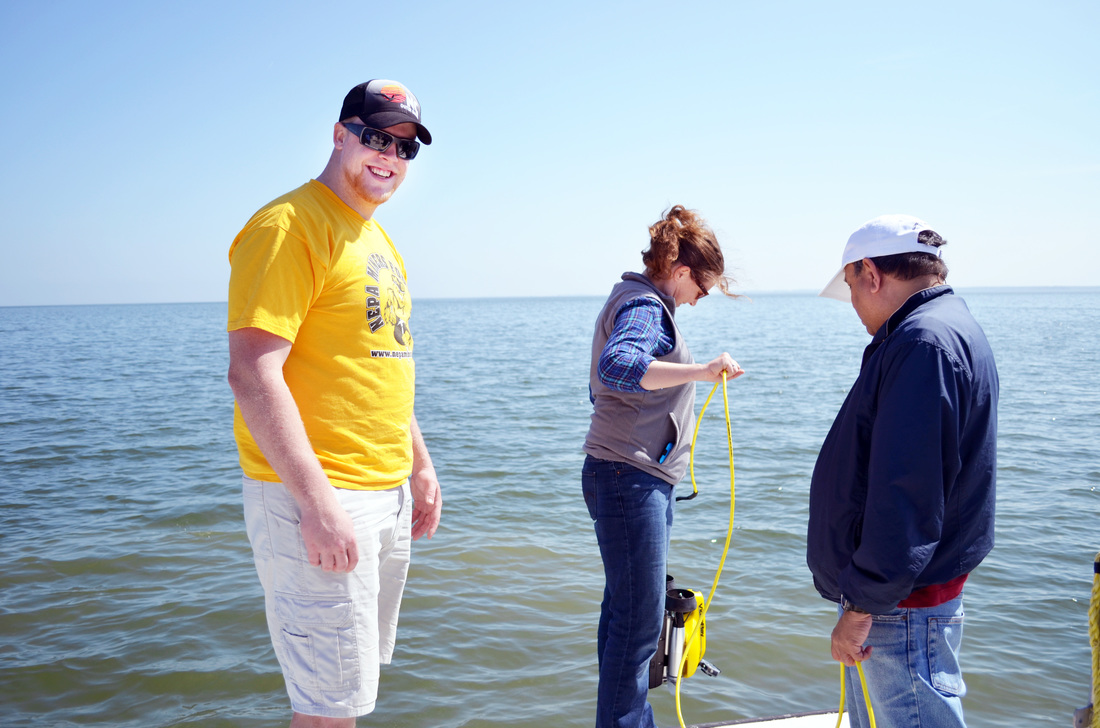
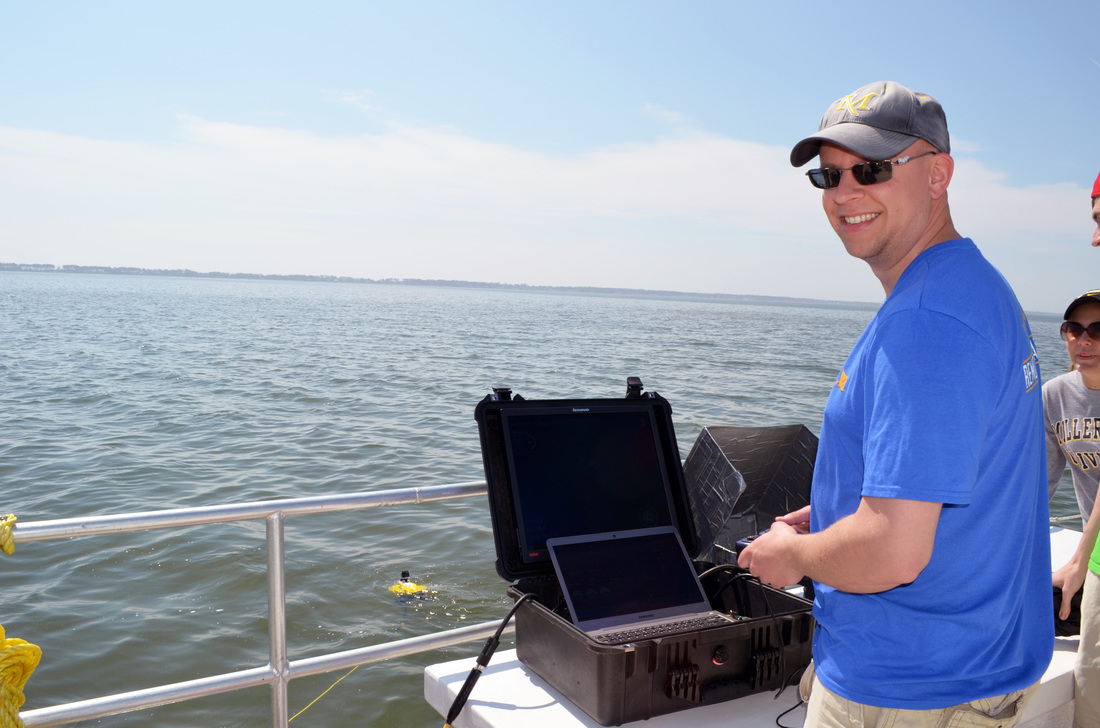
 RSS Feed
RSS Feed

